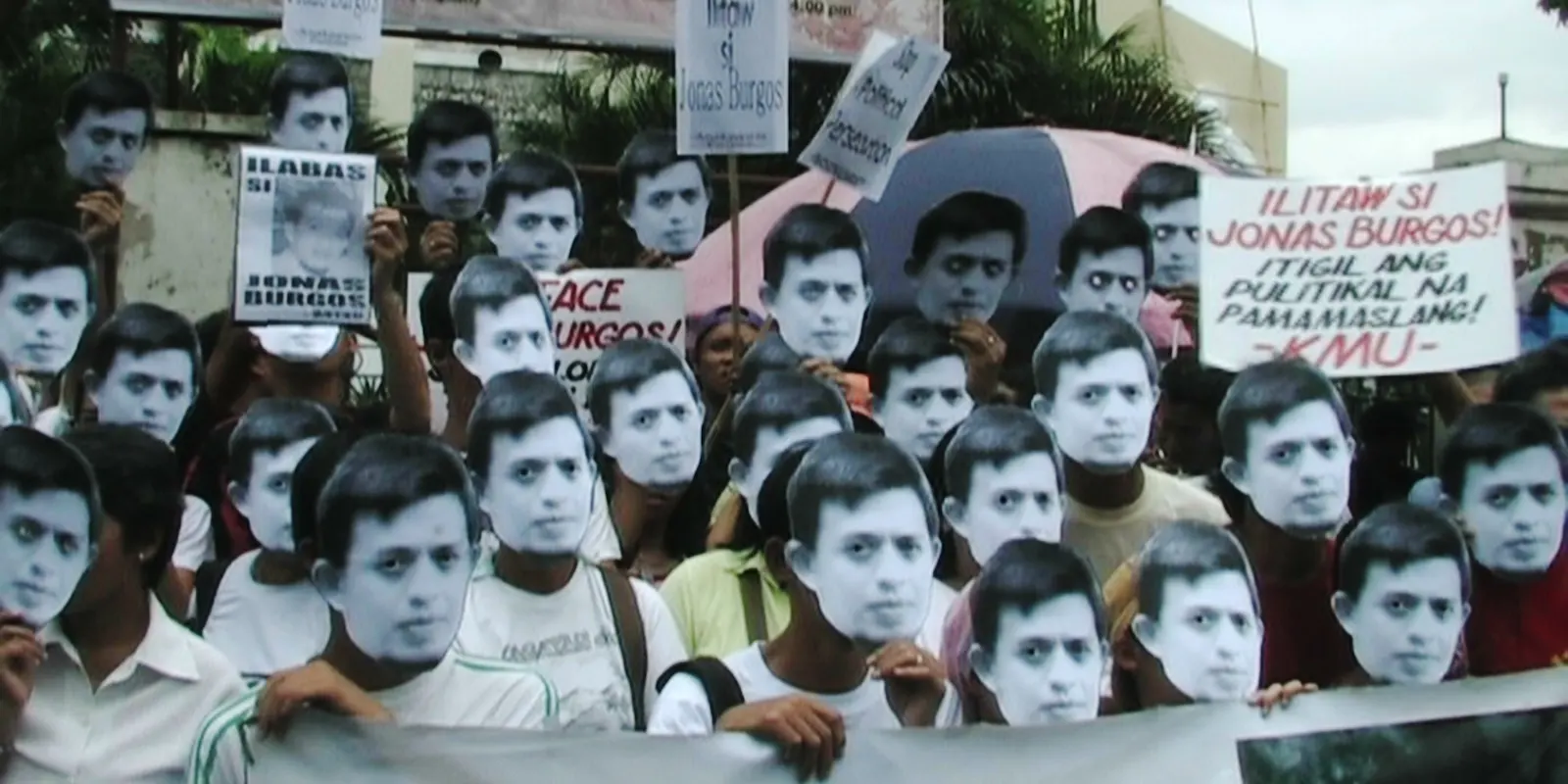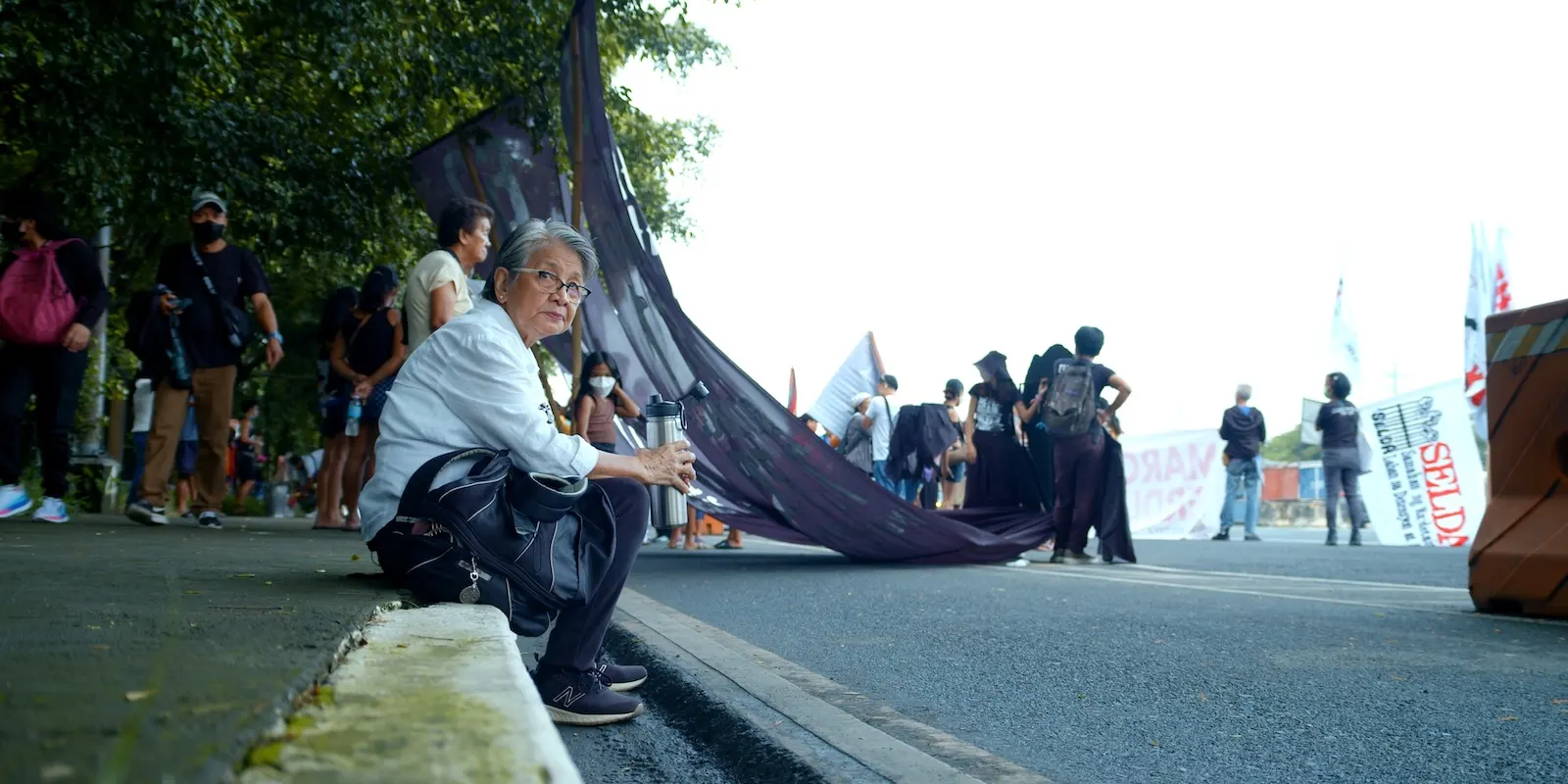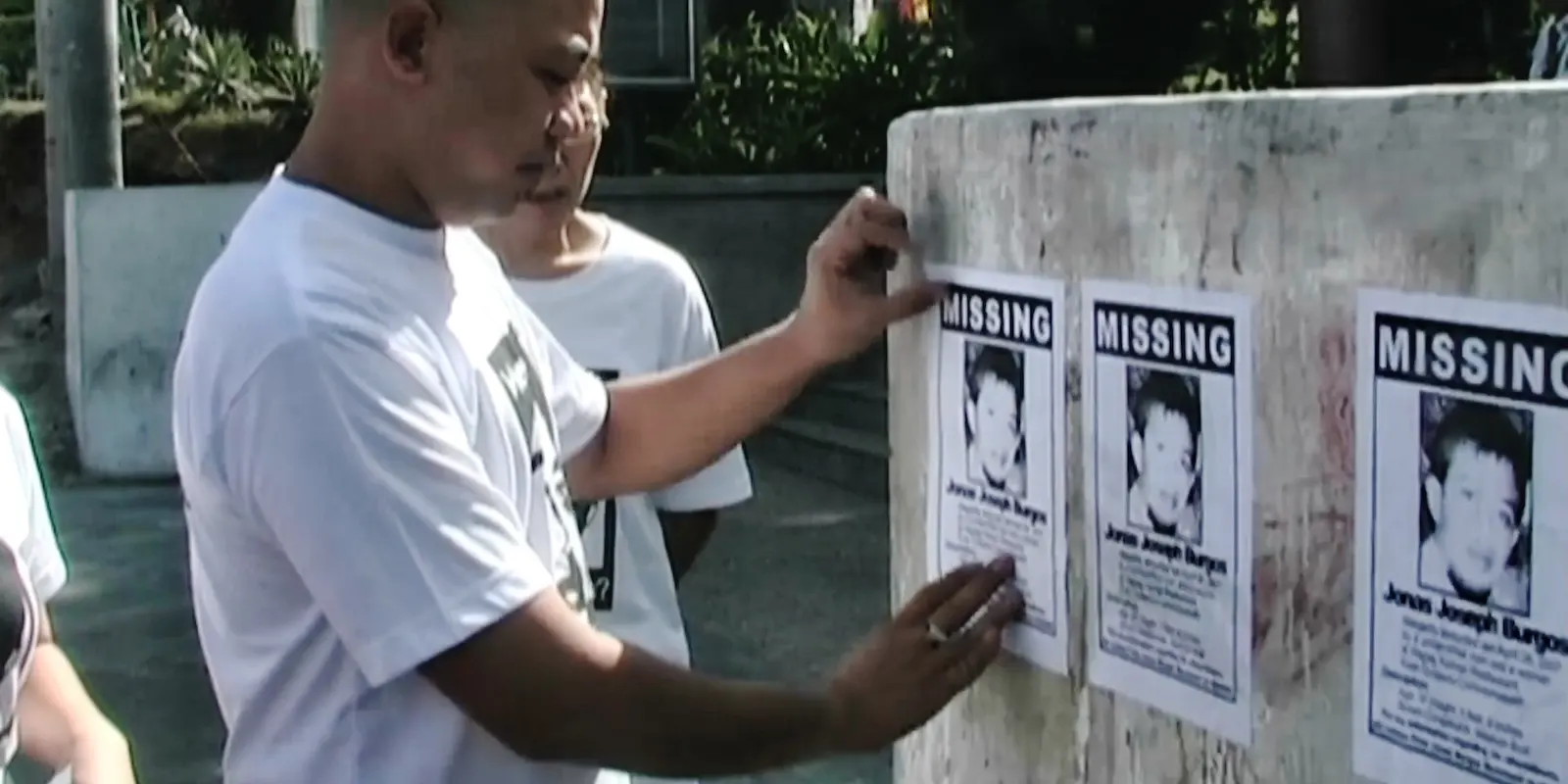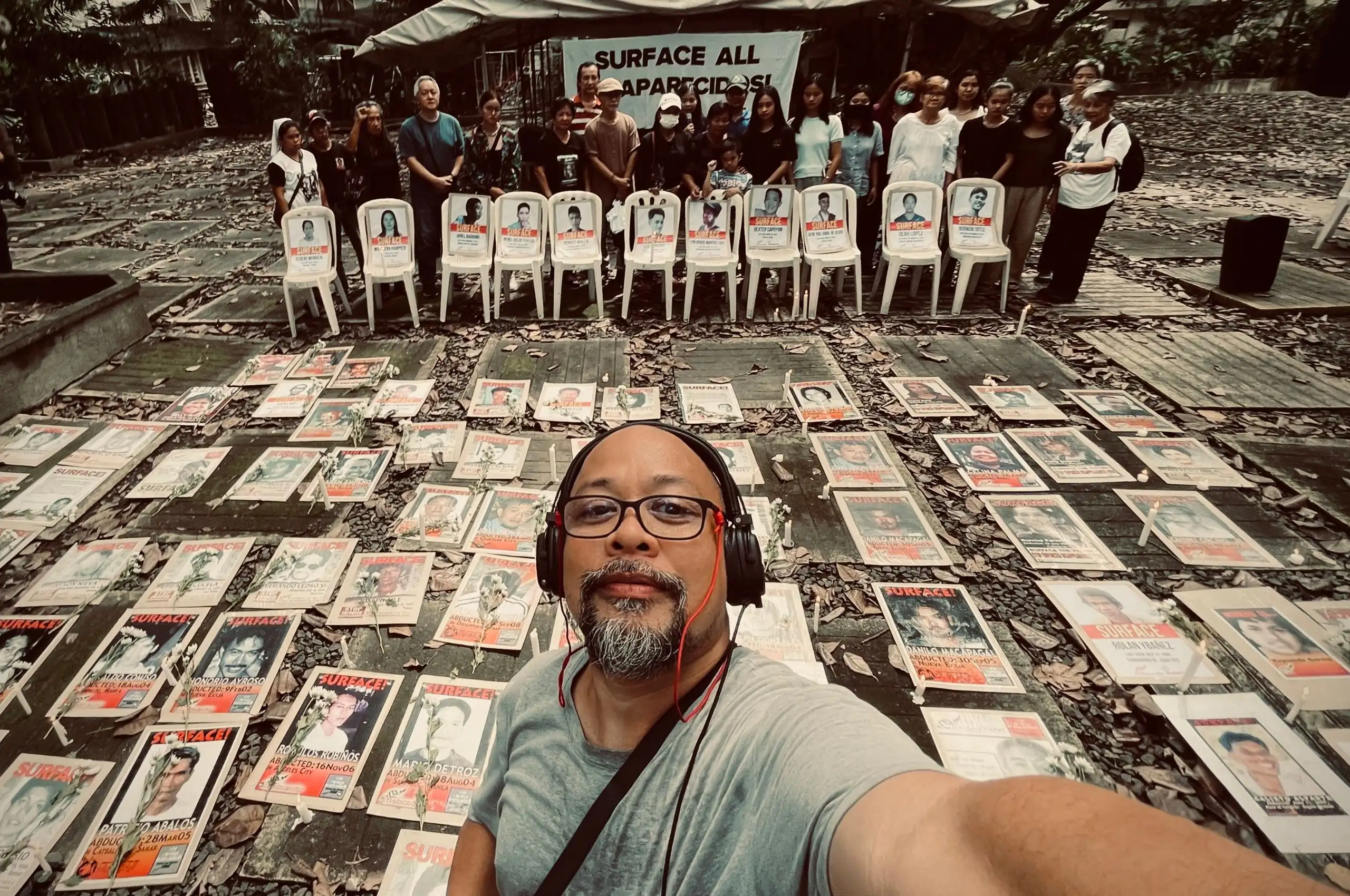“Kapatid ko si Jonas Burgos na dinukot ng militar noong panahon ni Gloria Macapagal Arroyo,” began the speech of filmmaker JL Burgos at the Baha sa Luneta rally on Sunday, September 21. Jonas was a member of the country’s peasant movement and worked to help farmers reclaim their land until suspected military personnel abducted him at a Quezon City shopping mall in 2007.
In 2012, the Anti-Enforced Disappearance Act was passed into law, but without the Philippines signing the United Nations’ International Convention for the Protection of All Persons from Enforced Disappearance, Burgos tells Rolling Stone Philippines, “It’s just paper.”
On August 22, his documentary Alipato at Muog won Best Picture at the Filipino Academy of Movie Arts and Sciences (FAMAS) Awards, exactly a year after the Movie and Television Review and Classification Board (MTRCB) gave the film an X-rating.

At the time, MTRCB Chairperson Lala Sotto explained that the board disapproved of films that may “undermine the faith and confidence of the people in their government and/or the duly constituted authorities.” With the X-rating, the documentary on Jonas and enforced disappearance was permitted exhibition at the Cinemalaya Film Festival in 2024 and at academic film showings, but not for commercial distribution. In September, the MTRCB reviewed the film for a second time and gave it an R-16 rating, but screenings remained limited.
The film, which follows the search for Jonas after his abduction, has seen small screenings in various parts of the country, hosted by academics and human rights groups. When I interviewed Burgos in early September, he was in Leyte, getting ready for a screening and talkback at the University of the Philippines Tacloban.
Now back in Manila, Burgos’ most recent appearance was onstage in Luneta. “Isauli ninyo ang ninakaw ninyo sa amin!” he screamed into the microphone. “Isauli ninyo ang mga dinukot ninyong aktibista! Mga aktibistang nananawagan lamang ng lupa sa magsasaka, mga aktibistang nananawagan lamang ng makatarungang sahod.” He then called on the government to surface the desaparecidos.
“Ang Dexter [Capuyan] and Bazoo [de Jesus] case, mayroon na silang writ of amparo, they were granted writ of habeas corpus. Pero all wins sa courts, it’s just paper. The missing are still missing.”
In this interview with Rolling Stone Philippines, the activist and filmmaker talks about Alipato at Muog, censorship, and what the FAMAS Award means for him and others who’ve lost loved ones to enforced disappearance.
What’s it been like doing these screenings across the country?
Empowering? Kasi every time na nag-screening kami, it feels like mas marami nang nakaintindi ng case ni Jonas, or they understand the cause now. So honestly, it feels like we’re gaining ground because more people are seeing what is happening in the Philippines and what our story and message [are]. So ayan, empowering talaga siya.
Nabasa ko nga na as soon as your brother Jonas went missing, you started shooting the footage that would become part of Alipato at Muog. But you held off putting it out for years, hoping for a happy ending. At what point did you change your mind, that you felt you had to put this out anyway?
Siguro a few years ago — I forget already when — pero there was a young activist that I was talking to. She didn’t know Jonas and she didn’t know the case of my brother. So I was heartbroken, not because she didn’t know the case but because it is our responsibility to let people know that Jonas and other enforced disappearances are happening.
Dapat kami ‘yong nagku-kuwento. Tapos noong nalaman ko na hindi alam ng batang aktibista ang case ni Jonas, parang sumama ang loob ko at that time. Sabi ko, “I really have to make a film about my brother.” So ‘yon, nag-apply ako sa Cinemalaya. Thankfully, Cinemalaya supported our story and welcomed us in the film festival.

Nakita ko sa Facebook post niyo na the Philippines hasn’t ratified the human rights treaty on enforced disappearance. For you and for the other families of the victims, ano ‘yong source ng hope niyo that we could get our leaders to change that?
Hope is the only thing that we have right now. We’re not really expecting the state to do something about enforced disappearance. Honestly, sa tingin namin talaga parang showbiz lang kung anumang efforts na mayroon sila, kasi we have filed cases, we won different cases — our case included.
Halimbawa, ang Dexter [Capuyan] and Bazoo [de Jesus] case, mayroon na silang writ of amparo, they were granted writ of habeas corpus. Pero all wins sa courts, it’s just paper. The missing are still missing. So, with that context, tingin namin ang government will not make an effort to stop enforced disappearance until people pressure them to sign — in this case, the International Convention for the Protection of All Persons from Enforced Disappearance.
“We really believe that enforced disappearance is the worst kind of human rights violation, kasi hindi lang ‘yong victims mismo ang biktima dito. Hindi lang ‘yong dinukot ang biktima dito, kung hindi the whole community, the families, the friends.”
Mayroon nang Anti-Enforced Disappearance Act, ni-lobby-han namin noon. So the families of those who disappeared, tumulong dito sa pag-aayos ng batas na ito. Pero despite na mayroon nang Anti-Enforced Disappearance Law, wala pa ring nalitaw at wala pa rin nakasuhan. Ibig sabihin hangga’t hindi nangyayari ‘yong intention ng batas, lahat ‘to ay paper lamang sa amin. Kasi the real objective of such laws and conventions or agreements or treaties is to surface the missing, and siyempre justice will be served sa mga perpetrators.
You, the executive producer Mona Nieva, and others who worked on the film fought hard to bring the X-rating down and make it more accessible to a wider audience. In that journey of overcoming censorship, what does winning Best Picture at the FAMAS Awards mean for you?
We know FAMAS is a showbiz award-giving body. A few years back, nanalo na ang Aswang ni Alyx Arumpac sa Best Picture. Documentary ito about the extrajudicial killings during the Duterte regime. May mga instances na nanalo ‘yong mga socially charged films. Pero sa amin, ‘yong enforced disappearance, feeling namin talaga hindi siya napagusapan nang husto.

We really believe that enforced disappearance is the worst kind of human rights violation, kasi hindi lang ‘yong victims mismo ang biktima dito. Hindi lang ‘yong dinukot ang biktima dito, kung hindi the whole community, the families, the friends. And aside from that, they are deprived of liberty. Inalis din sila sa protection of the law, so anything the abductors want to do to their victims, they can do it: kill them, deprive them of food, torture, any human rights violation.
So noong nanalo kami ng FAMAS, ang pinakamalakas na sigaw ay ang sa kasama namin sa human rights community. ‘Yong ganoong klaseng award na binigay ng FAMAS, binukas [niya] ang mga ganitong klaseng story na matagal at not easy pagtakpan ng state. ‘Yan ‘yong pinakamalaking pasasalamat namin sa award na ito.
Given that, are you looking into a wider release for the documentary? And do you think the award helps with the prospects of that?
We attempted na mag-commercial run pero wala kaming pera. So what we’re doing now, hindi siya [‘yong] traditional commercial run. What we’re doing right now are the alternative screenings. Pupunta kami sa schools, mga microcinemas, ganyan. Gusto namin talaga mag-commercial run, especially after the FAMAS recognition. Pero so far wala pang mga takers, probably because it’s a political documentary. So malamang sa tingin ng mga malalaking cinemas, hindi siya commercially viable, which we’d like to disprove sana. Kasi sa mga screenings namin so far, ang ganda ng batting average namin.







